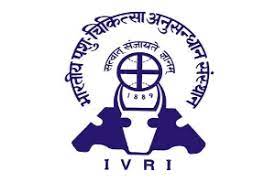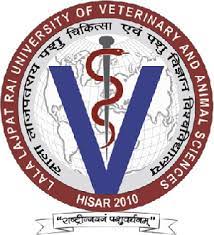Those seeking a Ph.D. in poultry science have several options. Depending on their area of interest, they can focus on beef cattle, sheep, chicken, pigs, horses, or even marine life. After completing their master's degree, they can move into academia or private consultation. Many choose to combine these two career paths. Other students study animal nutrition with a Ph.D. in food science.
Graduate students may choose a thesis option. They must earn a minimum of 96 credit hours with a BS or MS in poultry science. As a doctoral degree, the coursework and research emphasize independent research. Students typically complete three major independent projects as part of the program. Ph.D. candidates present their results at scientific meetings and are employed in government agencies, medical research labs, or hatcheries.
An additional option is to pursue a post-doctoral degree in poultry science. This degree will equip students with knowledge and skills in basic and applied poultry science. A Ph.D. in poultry science will give you a broad perspective on the industry. While the field of poultry science is relatively new, it presents a vast array of employment opportunities. Besides academia, a career in poultry science can take the form of a hatchery, farm, or meat company.
Graduate degrees in poultry science are a great way to advance your career. This advanced degree is a perfect fit for those with a passion for the field. The program prepares students for careers in the commercial poultry industry, academia, or government. While pursuing a Ph.D. in poultry science, students acquire training in areas such as animal health and nutrition, or genetics. Additionally, students receive research training in avian parasitology, chicken behavior, and physiology.
Ph.D. in Poultry Science Eligibility
Candidates who want to take admission in Ph.D. must have a post-graduate degree in Poultry Science and its relevant discipline with at least 55% marks from a recognized university and must have passed the national level entrance examination or university level entrance examination. National level entrance exams like UGC NET / UGC CSIR NET / GATE / SLET or University entrance exams consist of written tests and personal interviews.
The Benefits of a Ph.D. in Poultry Science
The Department of Poultry Science offers graduate degrees in poultry science. Students can earn a Master of Science degree or a Doctor of Philosophy degree, depending on their chosen field. These programs prepare students for careers in academia, government, or the commercial poultry industry. Graduates acquire research training and experience in areas such as nutrition, genetics, breeding, and food safety. A Ph.D. in poultry science will also open doors to research positions in academia and the poultry industry.
The Department of Poultry Science publishes an international journal, Poultry Science. The Journal publishes original research papers, research notes, symposium papers, and reviews on basic science applied to poultry. It is consistently ranked as one of the top veterinary journals, and it has been hailed as the premier poultry journal in the world. The program prepares graduates to become experts in poultry genetics, physiology, and health.
The Department of Poultry Science offers excellent graduate study opportunities for individuals with a bachelor's degree in animal science. The department's poultry-related graduate programs include microbiology, genetics, and parasitology. Besides preparing students for employment in poultry-related fields, the department offers programs in nutrition, microbiology, veterinary medicine, and nutritional research.
The Career and Job Opportunities of Ph.D. in Poultry Science
A Ph.D. in poultry science can lead to a variety of exciting career opportunities. Many people in the industry are in need of scientists and other specialists who can help improve animal health and productivity. Graduate students who specialize in nutrition and animal welfare can work in the poultry industry, where there are many opportunities for advancement in this field. The poultry industry is also an excellent place to develop skills in a variety of areas.
The poultry industry is growing rapidly, which requires an increasing number of qualified scientists to ensure that the industry remains competitive and profitable. The poultry industry also demands managers with excellent management skills, so these professionals must have a solid background in animal science to advance in the field. While many people enter the poultry industry as poultry managers, it's not uncommon for poultry scientists to pursue a Ph.D. in poultry science after working as food scientists for many years.
Those who earn a Ph.D. in poultry science may find employment in a variety of different fields, including research, teaching, and management. The growing poultry industry needs these workers, as well as those with strong managerial skills. While many of these positions are entry-level, those with a strong scientific background can progress quickly within the field. Those who choose this field have an excellent opportunity to advance quickly and pursue a successful career in the poultry industry.
The Future Scope of Ph.D. in Poultry Science
The poultry industry is growing at a rapid rate, and as such, the need for poultry food scientists is growing as well. This career path is extremely rewarding, as it involves working with people and managing processing plants. In addition to the opportunities in the poultry industry, a Ph.D. in the field of poultry science allows you to develop managerial skills. After completing your training, you can enter the industry as a research scientist and advance your career.
Many jobs in the poultry industry require graduate-level training in poultry science. This degree can help you become a scientist, mechanical engineer, or businessperson. There are many job openings in the poultry industry, including positions in feed mills, hatcheries, and pharmaceutical companies. You may be interested in teaching, or you could start a poultry farm. Whatever your career path, you will be ready for the next step in your career.
The poultry industry offers great career prospects for graduates, especially those with advanced degrees. This field is highly technological and has many professional levels. You can work in the hatchery industry, feed millers, and pharmaceutical companies, or even in the feed analysis labs of government agencies. If you want to work in agriculture, you should consider a career in poultry science. You can also work with the poultry industry as a consultant, or as a researcher.
Ph.D. Research Programme duration
The Ph.D. in Poultry Science course is a minimum of 3 years and a maximum of 5 in duration. This depends on the university offering the course.
Fees for research program for Poultry Science
The average fee for Ph.D. in Poultry Science degree is between INR 50000 and INR 500000.
 5 Years
5 Years
 PhD
PhD
 Research
Research















 back
back